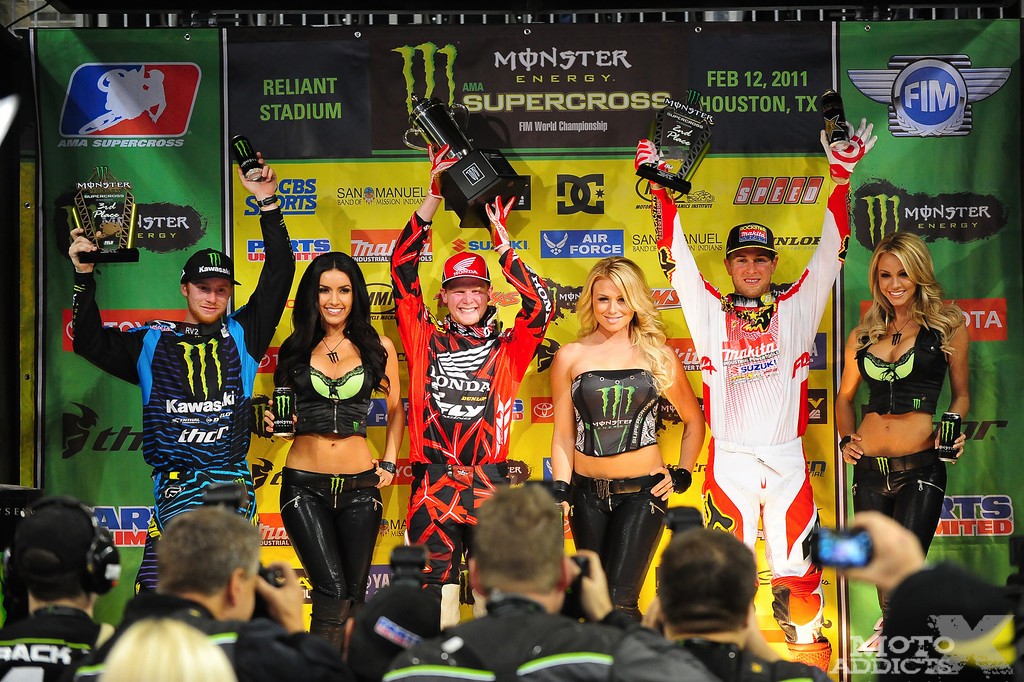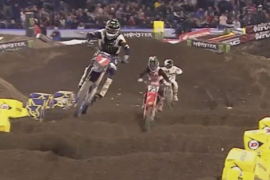Photo by Brian Robinette (@RobinettePhotos). Click photos to enlarge and for slide show.
For more than a decade, motocross and Supercross have been a sports dominated by guys like the “The King” Jeremy McGrath , “The G.O.A.T.” Ricky Carmichael and, most recently, James Stewart and Chad Reed. Over the last two years, though, the new breed of MX and SX superstars have made it clear that they have no intention of letting this trend of having one or two guys dominate continue. With riders like Ryan Dungey, Ryan Villopoto and this week’s Inside Story, Trey Canard, making their way into the premier class, fans have been treated to competitive racing like never before.
Trey Canard joined the professional Supercross circuit back in 2008 and took to the professional-level like a duck to water. Trey was not only one of a small handful of riders to win the first SX race they ever entered, but he also went on to secure his first Lites Regional SX Championship in his rookie year. After that first title, though, things didn’t get easier for the kid from Shawnee, Oklahoma. Trey, after struggling to do what he did in SX at the Outdoor Nationals, wouldn’t complete a full season of racing without a serious injury for the next two years.
Trey fought back in 2010 and completed one of the most inspirational comeback stories our sport has ever seen. He backed it up with another amazing come from behind ride at the Motocross of Nations and an incredible rookie season in the 2011 450 SX season. Because of these accomplishments, an incredible fighting spirit and his genuinely gracious attitude, Trey has inspired many and become a superstar in the sport. Today, though, Trey is once again preparing for another comeback after a practice crash sidelined him at the end of the 2011 SX season and he just recently started riding again.
Last week we gave Trey a call to talk about his amateur days, his two Championships and all that’s transpired in his racing career that’s made him one of the super-stars of the sport. This is how the conversation with Trey went.
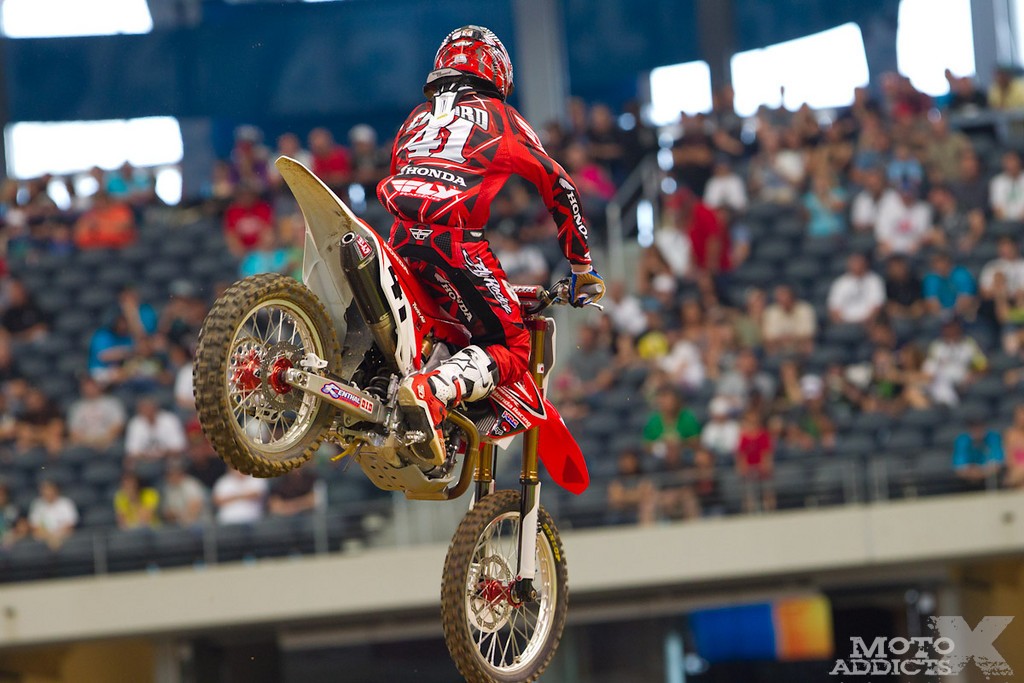
So, I hear you’re out getting a massage. Life is good!
Believe it or not, they’re not all as good as they’re cracked up to be.
More of a physical therapy type of deal?
Exactly.
Yeah, those aren’t always that fun. Are you riding yet?
Yeah, I just started. That’s why the massage was a little sore.
How’s the riding going so far?
It’s going good, just taking it day by day. It’s a long process trying to get back to where you were. It’s going good, though. I’m having a lot of fun.
I was a little bit surprised when I saw you at Hangtown still on crutches and looking like you were still dealing with some pain and discomfort. There was talk in the beginning that you might make it back for outdoors.
Yeah, that was the general consensus when it first happened–that we were going to be back for Hangtown or maybe the second or third round, but, I mean, it’s a femur break, the biggest bone in your body. It’s obviously not going to heal maybe as fast as you like. I’m pretty fortunate to be riding at nine weeks. You know, that’s pretty fast to be back from a femur injury, so I’m pretty thankful to be riding again.
For sure! It took what, like six months the first time you did it at Washougal?
Yeah, it was about four, almost five months. This time it was about two months. It’s not near as bad of a break, but, still, it could have been a lot worse.
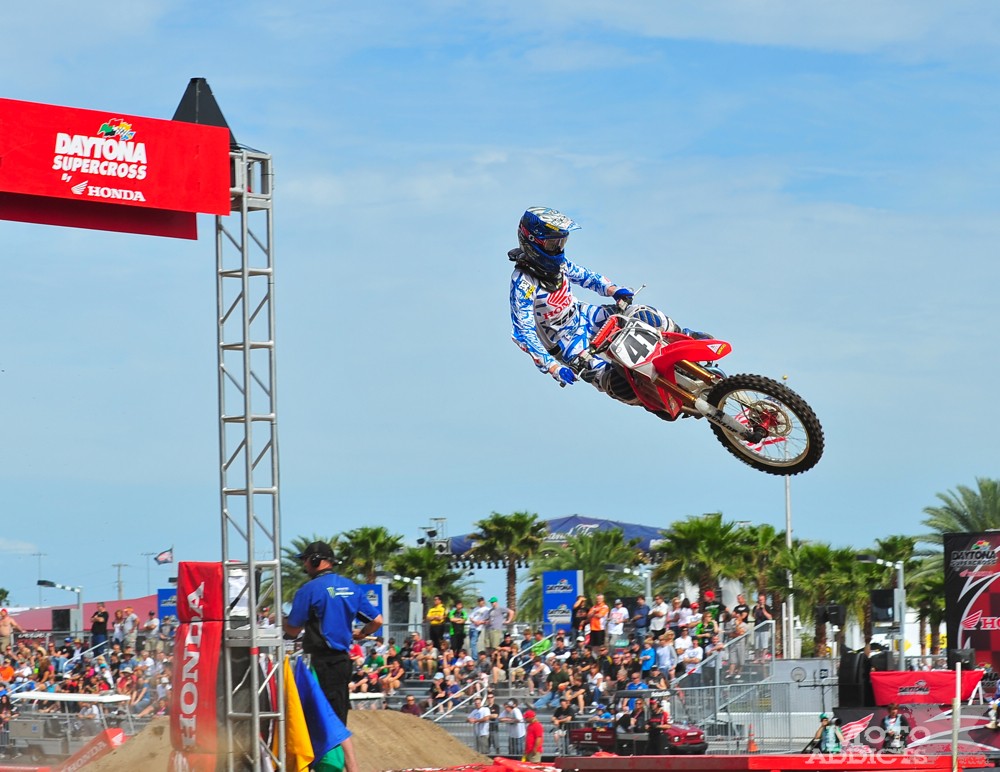
Definitely. That’s one of the things about motocrossers; you’re always thinking how things could have been worse. I’m curious, though: how did you get into riding dirt-sickles in the first place. Before 2006, the casual fan had never really heard of Trey Carnard.
My parents had a dealership, and that was the family thing to do–you know, go ride motorcycles on the weekends and go to little night races. It was just a hobby that we all enjoyed and something we did as a family, and it just kind of escalated from there.
How old were you when you first got on a dirt bike?
I was three and half and riding really early, which is kind of the name of the game in this sport.
Did you get right into racing, or were you just riding around the plantation at first?
Races were just fun. It’s not like we did it competitively; it was just something we did on the weekends. There weren’t a lot of tracks around to ride, so you pretty much had to go race. So, that’s what we did, and we made it fun and had a good time with it.
Nice. So, when did you and the family get competitive with it as far as taking it to that next level with the amateur nationals?
Well, what was cool for us is we lived so close to so many of them. The Texas National was three to four hours away, and Ponca City was about three hours away. Being that we were so close, I actually got to start racing those fairly early. I didn’t really start taking it too terribly serious until I was about eight or nine. Then, I got a Team Green ride, and you’re obligated to go to these races.
How did you do on the mini bikes at the national level. I know you didn’t start winning Loretta’s until the big bikes, but did you win any amateur nationals on the small bikes?
I won a couple of Championships on the 65, a couple smaller Championships on the 80. I really didn’t start to take off until I was on the bigger bikes–intermediate and schoolboy class.
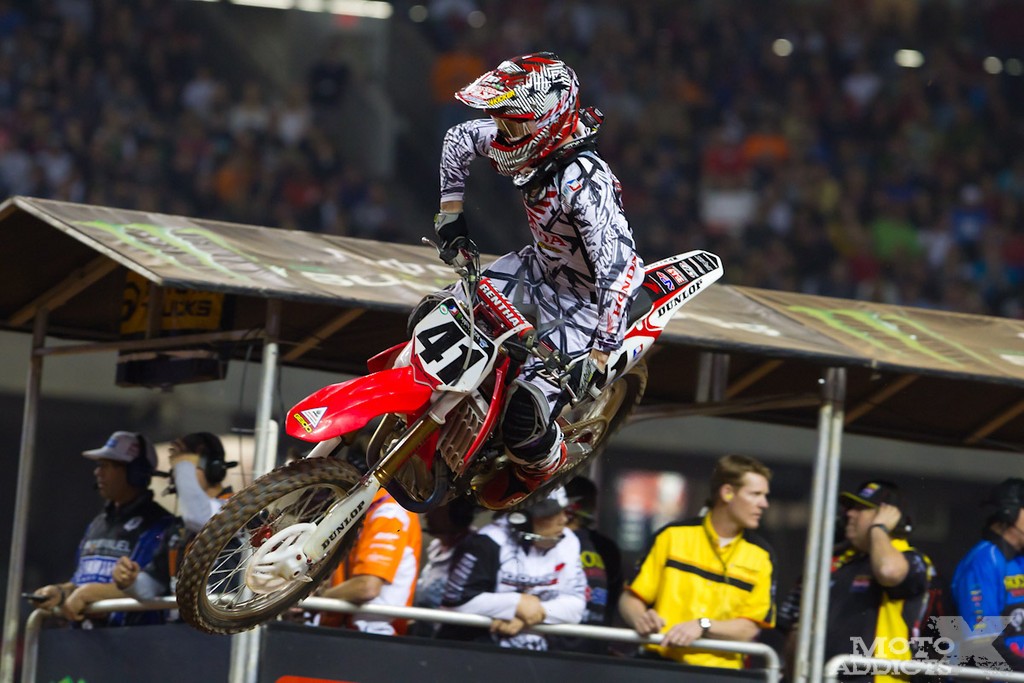
When you moved to the big bikes, the Stroupe/Izzi/Canard battles really started. Was the rivalry between the three of you pretty heated back then?
Izzi, particularly on the 80’s, was the guy to beat. Stroupe was the guy to do it at times, but Izzi was always the guy that was winning. He had a really successful amateur career. It seemed like Stroupe took well to the big bikes–myself as well–and you know, Dungey was in there. My first year as a B-class rider was intense. We had several guys that could win, and I think it’s cool. I think most of us are doing really well with it, and that group of riders has been successful, so it’s pretty cool.
Yeah, that was one heck of an amateur class. Do you think on some level that group kind of gauges where they’re at professionally by where you are or where Dungey or someone else in that class is?
Nah, it’s so different. I mean, in life in general, each step you take is a different way of life. Fortunately for me, I had some really good opportunities. You know, I don’t know. That’s kind of a personal question for those guys. I think our amateur careers and professional careers are two different things. I think it’s fair to say we’ve all been fairly successful at the professional ranks.
So, in 2007, you win both the 250 A-classes at Loretta’s and graduate to the professional ranks. Then, you go right out in 2008 Supercross and win your first-ever SX race in Atlanta. How cool was that?
Yeah, it was unreal! That’s always the dream. As a kid looking at SX, you never really think that you can win a race. Doing it was surreal. That’s one of my best racing moments ever, and to top it off with a couple more wins and a Championship just made it all the more surreal. It was exciting and something I’ll never forget. I feel very fortunate and blessed to have been able to do that.
I’ll admit it, I live–probably like a lot of fans–vicariously through you guys, and when watch moments like your first win, I find myself a little choked up and telling whoever I’m with I have something in my eye. (Laughs) Seeing someone accomplish a life long dream and seeing how much it meant to you was awesome.

It’s crazy, you know. At that point–being at your first race–it’s all you care about in the world. (Laughs) It’s crazy. You’ve wanted that for so long; you wanted to be a part of that and to kind of achieve that. You feel like you’ve accomplished a goal. Really you’ve just started. But man, it’s an unreal feeling, and I’m just thankful to be able to achieve that.
I’ve always been curious about what happened behind the scenes after the RV2 pass for the title where he went into the finish line pole. Did you catch much flack about that pass?
You know, definitely. I think on my side–and basically from a fans point of view–there wasn’t a lot, no. From him, I don’t think he thought much of it. I think everyone on Pro Circuit was a little bummed and didn’t feel like it was a good racing move, but I knew deep down in my heart I didn’t do anything intentionally. I was racing, and I’d never put someone in that situation. So, I had peace about it, and I know I’m not that type of racer. I was racing and putting my heart out there. I was thankful to win it and tried not to let that bother me.
Yeah, it was just one of those deals. If I remember it right, it was a double-triple, and you had the inside and the line.
Yeah, he cased the triple, and I double-doubled. He messed up, and I felt like I had the line. I went for it and my rear tire slipped out. It didn’t actually put him down; he just ran into the thing. It was just one of those things–an in-the-moment deal–and had I been on the receiving end, I’m sure my thoughts would be a lot different. No love lost, I have just as much respect for all the people I race, and hopefully, they feel the same way.
So, when you’re on the podium with that #1 plate held above your head, did you feel like your pops was there?
I mean, for sure–just that feeling of basically your whole life working for that one goal and achieving it and the flashbacks of what you did to get to that one point. And your family is, obviously, the biggest part of that. It’s just a cool feeling knowing that the work my dad–and the whole family–put in, that it paid off. Hopefully, it was a cool experience for all of them that we can all enjoy.
Yeah, you could tell everyone in your camp enjoyed that one. Especially mom. I think your mom gets as much camera time as any family member in the sport. (Laughs)
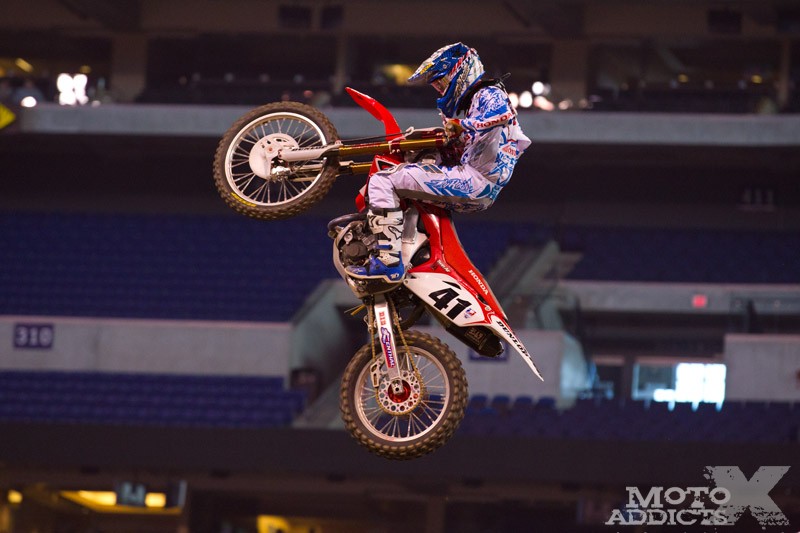
Yeah, she hates the camera. She’s not a big fan of it. I think, genuinely, we’re all real people, and I think people can really relate to that.
For sure. So, from there, you took that confidence of your first professional title outdoors with you. Was outdoors in 2008 a little harder than you thought it might be given that you had so much success so quickly in SX? Or was it just a standard rookie learning year?
I think had I not won the SX Championship, the outdoor season would have been a lot different. I think I put a lot of pressure on myself. The whole Championship experience is one that is hard to explain and is hard to bounce back from, win or lose. I think that you put so much energy and so much thought into it, and when you’re done, mentally, physically and emotionally you’re just completely drained. To put the pressure I put on myself again to go win the outdoors was too much. Looking back on it, I know that one of the reasons that I had the year that I did, I have to say that it’s about 95% my fault. You know, it was a learning year for me and one of the toughest outdoor seasons I’ve ever had. They’ve all been tough for me due to injuries and misfortune, but that one sticks out in my mind.
Really, though, by the time you broke your femur at Washougal, you were beginning to finish near the front. I never actually saw the crash because I think it was out of sight from the cameras.
Yeah, I led a lot of the moto and had a rough day. I didn’t score points the first moto, couldn’t get my bike started, ended up like twenty-first. I led a lot of the second moto, then “Dunge” passed me, and I was in a lonely third. I think I was maybe thirty seconds behind the two Ryans and another twenty seconds in front of the next guy. It was the last lap. A lapper tried to get out of my way. and it was a dumb crash in a switchback right by the finish line. I think the people that did see it were probably like, “How in the world did he break his femur?” It was just one of those deals. It was a life experience and one that I’ll always have with me. I think that any professional is going to have go through those highs and lows, and I definitely learned a lot from it and from the experience of being hurt. It’s one that I won’t forget.
After your recovery, you came back for 2009 SX and rode the West Lites SX Championship. Was the switch from East to West to get the experience on both coasts in case you won back-to-back titles and were forced to move up?
You know, a lot of people think that, but a lot of the reason I did it was because no one was healthy on the team. There were two of us that were healthy, and Wharton–it was his first year–was looking to do East Coast. Metcalfe was actually hurt at that point, so really it was either do West Coast or put Wharton on the West Coast and make him suffer. I felt like I was ready at the time, which really probably wasn’t the case because I hadn’t been on the bike for very long from the femur injury. I went in and was still putting all kinds of pressure on myself to win another Championship. That was another tough series for me.
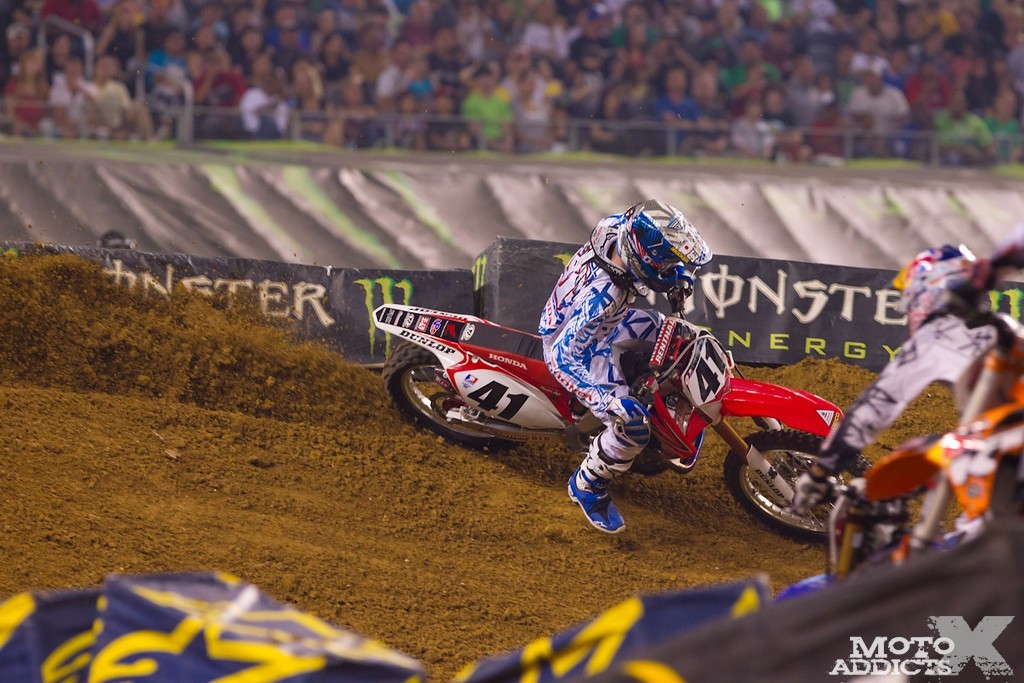
Yeah, it started out a bit rocky–probably due to lack of time on the bike coming in–but by the end, you really began to come around. You had a crazy battle with Wiemer for a win at Salt Lake and led much of the Vegas shoot-out.
Yeah, Salt Lake was good–finally started to turn things around at that point. You know, it always takes a long time to come back from something as traumatic as a femur break, especially as bad it was broken. Just the highs and lows of it is a tough thing to come back from. Now that I have that experience, hopefully it helps me in the future with injuries.
In the 2009 outdoor season, you were right back there once again. Before going down, though, and breaking your wrist at High Point, you were a lot closer than I think you get credit for. When you were leading that moto, you were only somewhere around ten points off the Championship lead.
Yeah, really I think if I had not gotten hurt, I would have been in a good place by the end of that series. I was really starting to click with the bike and was on the podium every moto but one in that series. I think that’s what you need to win a Championship. You need to be giving yourself a shot every moto. I was starting to figure things out and was thinking I was going to get that first win at High Point. Unfortunately, it didn’t go that way, but again, I learned a lot from that experience. That summer was really long for me–sitting there injured, watching all those races–I learned a lot about myself, and I think I fixed a lot of things with myself and grew with maturity.
With how well the season was going, it had to be a tough pill to swallow at that moment. Was it a huge here-we-go-again moment as you went down?
Yeah, for sure, but at the same time, the crash that was happening–had I gone over the bars–could have been a lot worse, so I was grateful to not be hurt worse. There was definitely a lot of disappointment. I know a lot of people get injured, but if you look at the guys that have been really successful, the injuries haven’t played a huge part. They’ve been relatively healthy for the most part–looking at R.C. and Dungey and a couple of guys like that. It’s disappointing ’cause each time you get hurt, you gotta dig yourself out of a hole again. You know that as soon as you’re hurt, it’s going to be an uphill battle for a while. But again, you’re grateful, and I think that’s something that needs to happen. You need to be grateful knowing you’re lucky to get to do what you do and it’s a blessing to be able to ride a motorcycle, and that’s a part that goes with it.
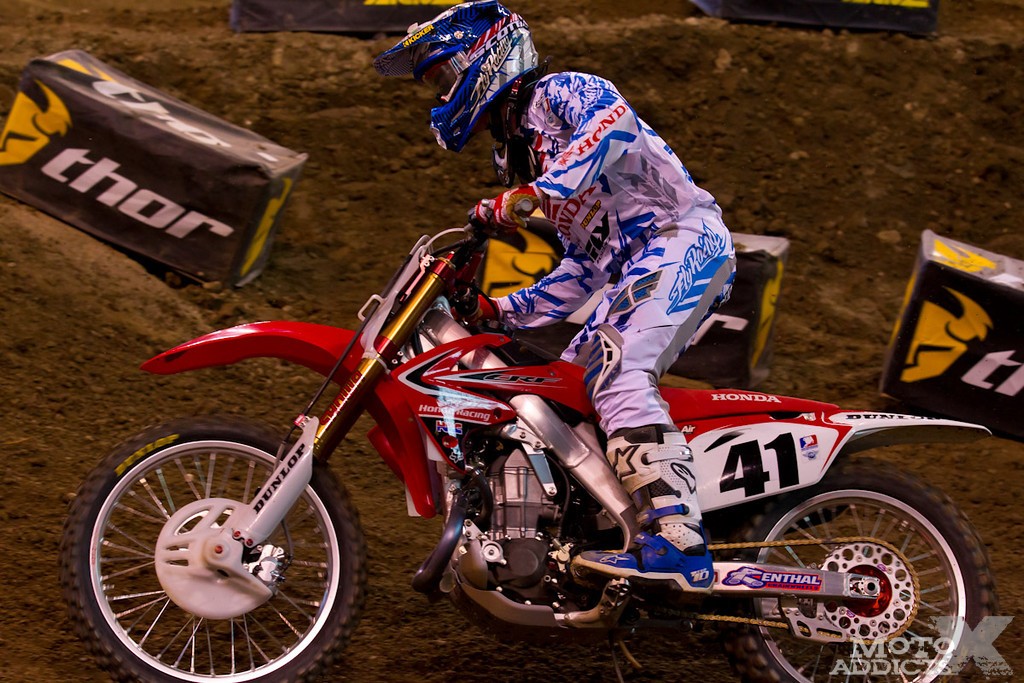
Yeah, for sure. The mental side of things is obviously huge for you, and it sounds like every chance you get–injured or not–you put a ton of focus on working on that aspect of your game.
Yeah, absolutely. It’s huge in our sport to have that mental edge. I think that probably 80% of training is simply to have that mental edge. It’s huge in our sport, and we’re a bunch of mental cases. Not many athletes compete as much as we do and can go from zero to hero as quick as we can.
Once again, you start a SX season fresh off rehab in 2010 and, once again, in the West Region Lites Supercross Championship. How would you describe the 2010 SX season?
2010, in the beginning, was a tough year. In the beginning–I hadn’t raced in a long time–we had a new bike and very, very little time to work with–new team manager and just a lot of new things. I think no one was ready at that point due to the lack of time with the new bike, and I had some new things with my program that I was kind of struggling with. At Anaheim, I don’t think I was near as ready as I needed to be. I was still able to get second, but was just not confident at all–didn’t believe in myself. It was a little bit of an uphill battle for the most part the first few rounds of that series. I was thankful to get a couple wins before I got the opportunity to ride the 450. We started to get a little momentum going, which was cool, and then, we got to ride the 450, which really helped us kind of make some big changes with the bike and helped us out as far as that goes. You know, there were a lot of good things that came out of the 2010 SX season as far as getting to ride the 450 and getting the opportunity to ride for Honda this year, as well as learning a lot about testing and working with a new bike. I feel like there have been a lot of struggles and each one has helped me in a certain sense.
I know a lot of riders struggle with the transition, and seeing you go out and land on the box immediately made it clear that we would be seeing a lot of Trey Canard in the future. Did racing and doing as well as you did on the 450 really help you realize that you could be doing this for a living for a long time?
Ah, yes and no! I think that I had kind of established myself in the sport a little bit beforehand to where I could at least have some sort of job, but knowing I had a team that was willing to work with me–to know that I had that opportunity come up–was huge, especially to be working with a team like Honda.
Yeah, it was cool as a fan to see how bright the near future was about to be. You made it obvious that you weren’t going to lay down for anyone.
Yeah! It was cool for me to see. I had some really good races. For the most part, I think I was fighting. That’s a big part of me. I like to fight: do whatever I can and give my all. I think that–you know, not to bag on anybody–that might [have been] missing in the 450 class over the past few years. It’s definitely not missing now. (Laughs)
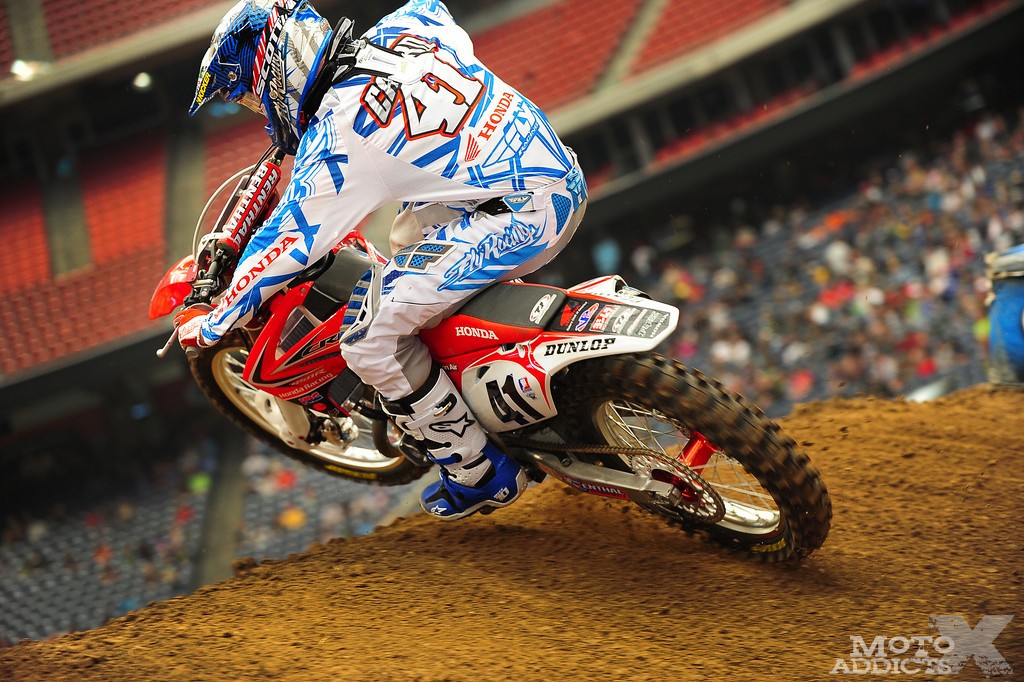
Yeah, I have to agree. For years–I’m not saying guys necessarily pulled over for anyone–most riders just knew from the drop of the gate that they couldn’t beat guys like R.C., Stewart, Reed and, before that, McGrath. Now with yourself, Villopoto, and Dungey in the class, we fans are in heaven.
Yeah, it’s been great for the sport, I think, and hopefully next year is as good as this past year. You know, it was so exciting, and it was cool for me to be a part of it. Hopefully, I can continue to be a part of it.
So, you finish 2010 SX third in the West behind Jake and Wil and with five podiums and two wins on the 250 and five podiums on the 450 . Heading into the 2010 250 Outdoor Nationals you were on the top of all of our lists as a favorite for the title, but instead the season started out with you struggling. Why do you think that was?
I think a lot of it was riding the 450. I didn’t have much testing time on the Lites bike. I had only [been riding] maybe two weeks of outdoors up to that point, and that definitely hurt me in a sense. Not that I’m bummed on the fact that I didn’t get to ride outdoors, because I think riding the 450 was an awesome opportunity for me, but I definitely didn’t come in prepared, and I wasn’t believing in the program I was using at the time. It was a lot of things. I think that I just wasn’t ready mentally and physically for that series to start. It definitely caught me off guard.
Yeah, I think your struggles caught everyone off guard because you definitely came into 2010 outdoors on the radar as a favorite. What brought on the huge change that really surfaced at Red Bud?
I think I started working with Tim Ferry after Texas, and you can’t change yourself overnight, for sure. There were things I needed to work on and things I really needed to believe in. I really just needed a good race to show me that, and that happened at Colorado. After Colorado, I really kind of realized I was still capable and able to ride a motorcycle. (Laughs) I was so fired up going into Red Bud knowing that I had a podium and was somewhat able to ride with those guys. We actually changed a part at Red Bud, as well, and it was just a perfect day for me for the most part, especially that second moto. It was a great moto for me and one of my best outdoor rides, I think–you know, just an amazing day.
Yeah, that Red Bud second moto was unreal to watch and a game changer for sure. You were going to the front, and it quickly became apparent that nobody was going to stop you.
Yeah, it was cool. Wilson and I got together at one point, but I remember thinking to myself, “If I don’t pass this guy right now–and I flounder around in second–this could be the story for me.” That’s not what I want to be, and I want to be up front, and yeah (laughs), I took the opportunity, you know. I’m thankful I did, because that really ignited my series and, ultimately, kind of got the comeback jump started.
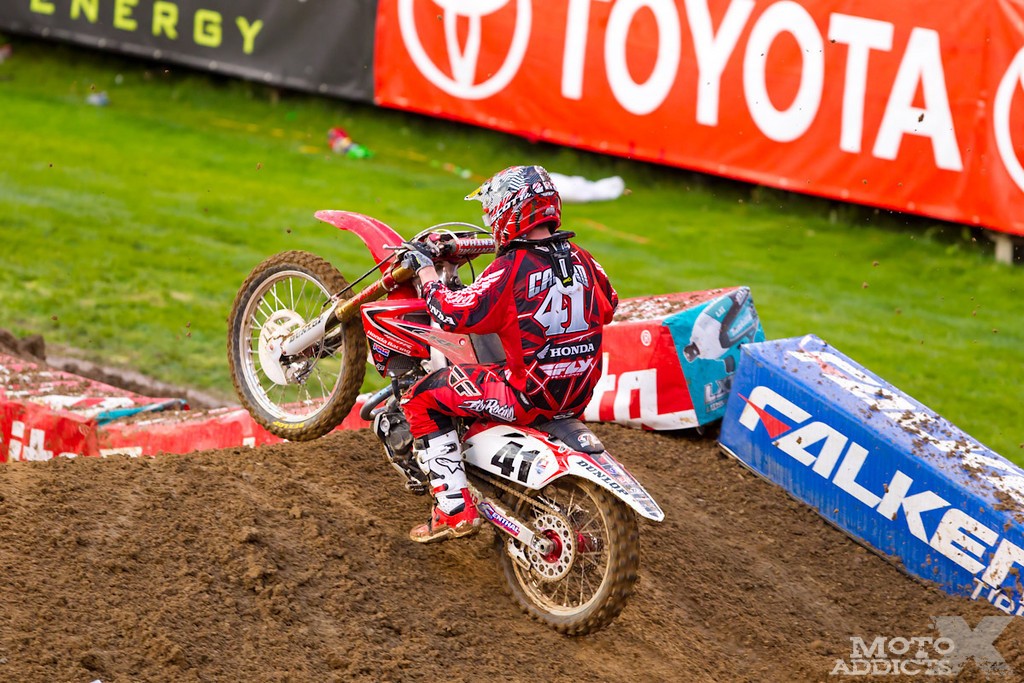
At that point of the series, most fans still truly believed Christophe was the fastest guy in the class and the man to beat. When did you begin to believe that you were the man to beat?
You know, I try to think of myself as a pretty humble person, and I never really think of myself in that way. I try not to think about others and just try to think about myself knowing that I’m prepared, I did all I can do and so I’m going to do everything I can to win this race and believe that I have the capabilities. I think, really, that came around after Washougal. I had a moto win and an overall at Red Bud and Millville, and at Washougal I really started to believe in what I was doing and believe in myself again. Washougal kind of showed that.
Yeah, it was quickly becoming apparent that you were taking over the series at that point. As far as when I began to feel like you were actually the man to beat in the class, it was after the straight-up war between you and Christophe at Steel City where you came out on top. That was one of the best races I have ever witnessed.
Yeah, Steel City was unbelievable. It was kind of a do-or-die situation. It was so cool to me to watch it on TV. I think that Christophe and I kind of separated ourselves from the rest of the group. It was just cool ’cause you knew that the Championship was on the line for both of us, and both of us rose to the occasion and had a really great race.
There was a part in the Great Outdoors DVD from the 2010 Outdoor Nationals where you say that you saw at one point that Christophe was celebrating beating you, and that’s when you knew you might be beginning to get into his head.
Yeah, that was after Unadilla. I had just made up a bunch of points due to his misfortune the first moto. He won, and really, whenever he wins, he usually just rolls over the checkered flag and doesn’t really do a whole lot. And I saw he whipped it, and he was revving his bike and fist pumping. You know when you see someone beat you and they’re ecstatic for it, you kind feel like–a little bit–I mean, you gotta know that they’re a little bit concerned about you. That was cool for me to see knowing that this is the real deal. It’s game on now, and this is possible because he thinks it’s possible.
So you leave Steel City knowing it’s possible, but with only two motos left to race at the Pala National, you still had–what was it–six points you had to make up to win the championship?
Six or seven, yeah.
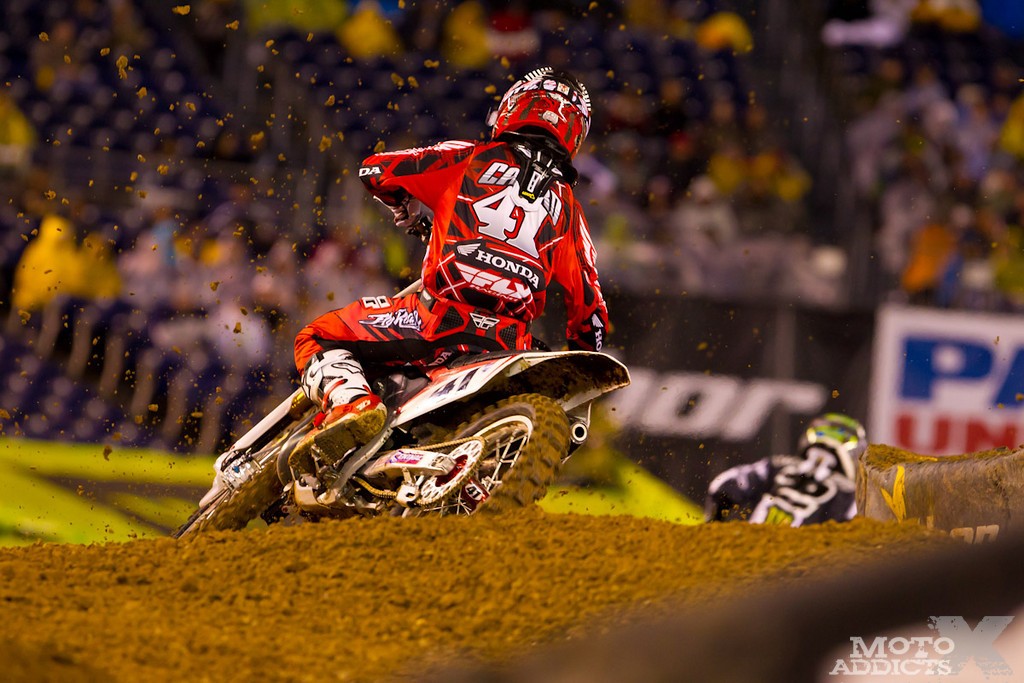
Then, in the first moto at Pala, Christophe gets off to a better start than you, and the next thing you know, you bobble and go down. Like a lot of fans did, I thought it was over, but was Trey Canard thinking it was over?
Yeah, I mean, for sure! I mean, it was a win-or-lose situation, and I crashed. I rode around for a lap and a half and kind of wallowed in self-pity for a little bit. Then, I started thinking, “It’s not over until it’s over, and I’m going to do everything I can until it’s over.” I started making big gains and, for a few laps, was making a big charge. Unfortunately for Chris, he got hurt. When I saw him on the ground, I knew he wasn’t getting back up, and to know you’re the Champion on the day is unbelievable.
It’s amazing for a fanatic like myself to be able to talk to you about that Pala race because what you describe is exactly what I saw. You could see that transformation in your posture and aggression on the bike from wallowing in pity to “I’m not going out without a fight,” and it’s awesome to hear you describe it.
Yeah (laughs), I mean it’s crazy. It was looking completely over, and it was hard not to be bummed on it, but the attitude of the whole season was to just keep charging and keep pushing forward and do your best. It was nice to have that feeling again.
It was unreal to witness, to say the least–one of the most inspirational Championship victories in the history of the sport–but you barely had time to enjoy it. There was still unfinished business ahead of you. You were one of the three riders selected in 2010 to represent the United States of America in the Motocross of Nations. What was it like being selected as the best 250 rider America had to offer?
That had been my dream since turning professional, since going to Budds Creek in ’07 and seeing Villopoto, Ferry and Carmichael. Witnessing it first-hand was so cool, and that was a dream of mine, to be a part of that. You know, being selected was cool, but even more than that was winning the race–doing the hard work, fighting and seeing the whole country really come together as a team. Just an unbelievable experience, and I hope I get to do that more and more. It’s just amazing and something I’ll never forget.
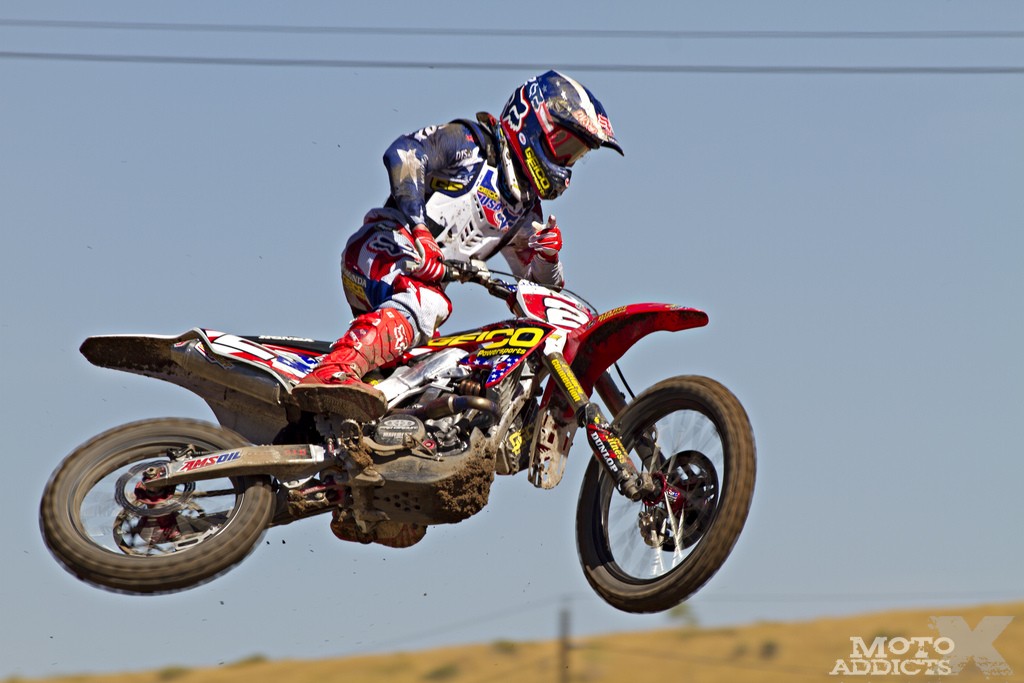
What did it feel like to be on the ground in the first turn and knowing you had the weight of a whole country of fans on your back? Was it more pressure than normal and a feeling of I gotta get this done?
You know, not really. It was the most calm feeling I’ve had being down in the first turn. You know, me and Osborne were down for a long time ’cause we were stuck together. It was the weirdest thing, and I remember Roger telling all of us that if we ever get in a situation, be calm, do your job, there’s nothing more that you can do–just be calm. Those words just kind came into view. It’s like, “Alright, I need to be calm and figure this situation out and charge to the front the best that I can.” You know, I got up, and I rode as hard as I could and as safe as I could because I didn’t want to turn one mistake into another mistake. That was a hard race. It was probably two of the hardest thirty plus twos I’ve ever done in my life. It’s something that every lap you hear the fans and everyone cheering you on, and to know that the whole country is behind you is such a motivator that it can push you to about anything, I think.
I am proud to say I was one of those fans hanging over the fence helping to motivate you (laughs), but I’m curious: now that you’ve won just about everything there is to win in our sport–Supercross Lites wins and a Championship, 250 Motocross National wins and a Championship, 450 Supercross races–how would you compare your Motocross of Nations team victory to all your other accomplishments?
It’s hard to explain; it’s almost a completely different feeling. There’s just so much gratitude and appreciation that goes along with the Motocross of Nations win knowing that it’s for your country–it wasn’t all you; it wasn’t all your team; it was everyone involved. Man! It’s one of the coolest feelings I’ve ever experienced. It’s humbling really. To know I race motorcycles and this has been my dream, and now I’ve won one of the biggest motorcycle races–probably the biggest motocross race–with my team… it’s just so gratifying and just an amazing experience.
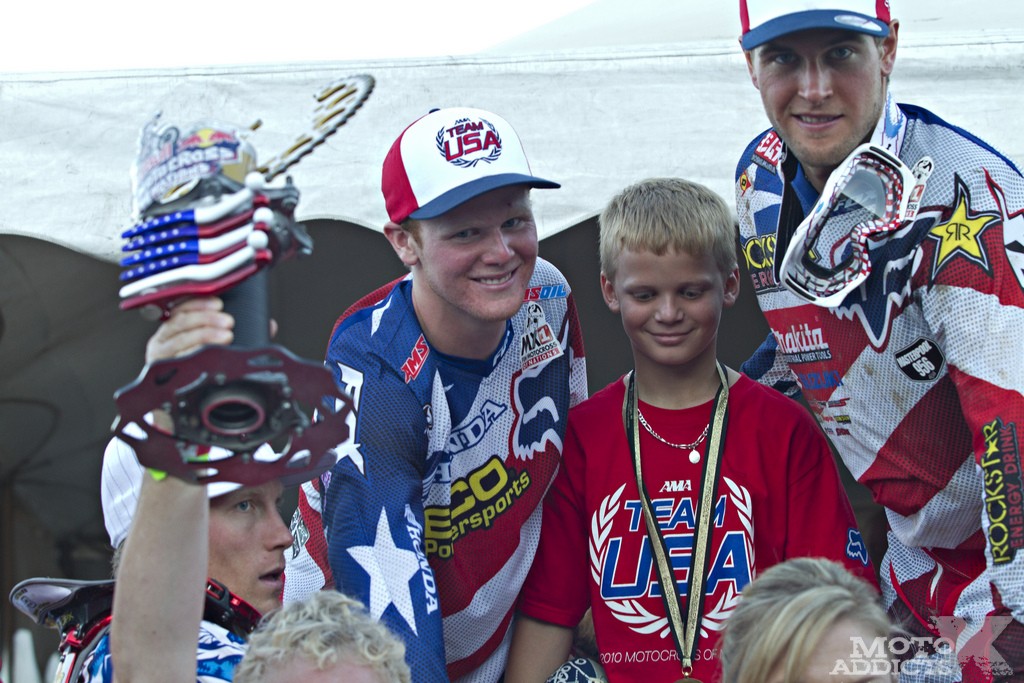
Man, that’s so huge. I can’t even begin to imagine what that experience would be like. What’s even more huge is you got through the whole year uninjured, and you’re now coming into your rookie 450 season prepared and ready to fight. How did you think you were going to stack up in the incredibly deep class?
I tried not to think about it really. I thought I was probably a top five guy. I wasn’t too concerned with it really. I just did my work, kept striving and kept pushing. I wanted to win a race before the year was up, and I think that was a realistic goal–just pushing for it. Come Anaheim, I knew I’d find out, and I definitely did. It was a great series for me really. Going in, it’s just been an amazing year for me minus the injury. It’s cool.
Well, you definitely surpassed your goals. How awesome was it getting your first win in Houston?
One of the worst days ever. (Laughs) One of the worst and best days ever. (Laughs) I had a terrible practice session. I had an injury that was nagging me at that point. I needed that win so bad. I was just starting to lose hope and was getting frustrated. Everything just kept going wrong. I kept having little stupid crashes and big crashes. [I was] just so pumped at that point. It felt like a dream–just that it was the premier class and I had just won a main event.
Yeah, it was a pretty insane race and a perfect ending. The title of the race report we put up that week was “Chaos In Houston.”
Yeah, the main event was for sure. The first turn–Stewart’s mishap with Jason Thomas, K’dub crashing… Who’s to say what would have happened if everyone would have stayed up. It’s important that you take those. You take them for experience and you take them for what they are. It is what it is. You can change it. No one else won the race. You gotta take those even when they’re given to you, run with them and use them as confidence builders. It definitely helped me to realize that it was possible, and it helped me a ton.
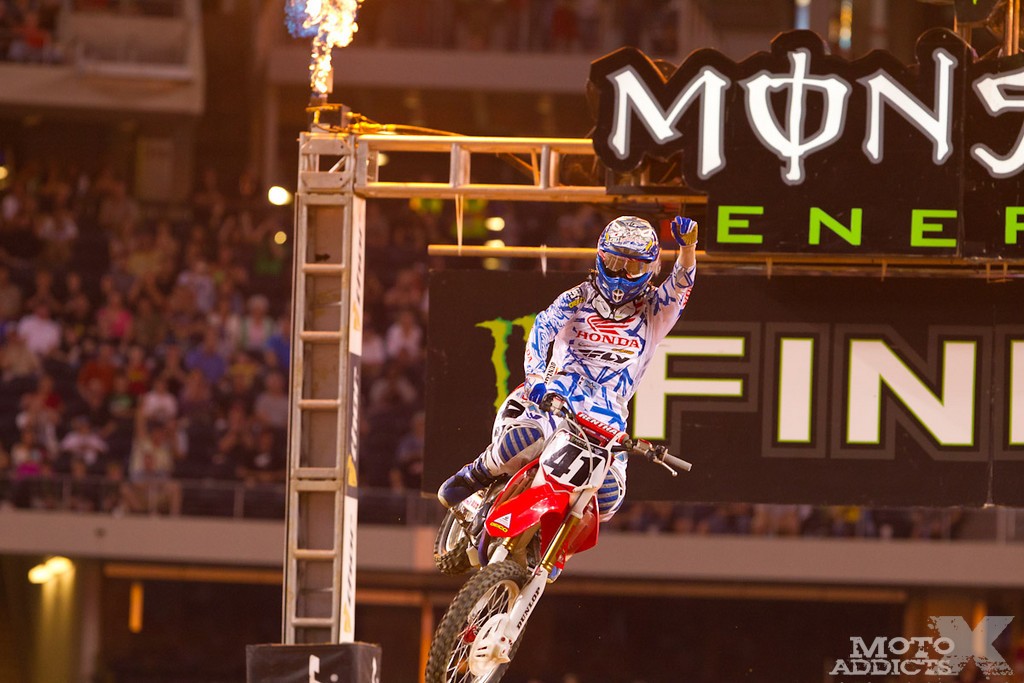
So, then you get the job done and win again in Jacksonville and Dallas. You were absolutely flawless in Dallas. Was Dallas as good for you as it was to watch?
Man, Dallas was so cool, just being that close to home. So many friends and family there. Man! Just the heat race and the main event couldn’t have went any better. I felt solid on the track , felt really good with my bike and just perfect. I couldn’t have asked for a better race. From the start to the finish, it was awesome. I felt like that was probably my best race all year as far as consistency and just putting down laps. I felt like I did what I needed to do, and to do it in front of that crowd with all my friends and family–man, it was an awesome race, one that goes down in my book as one of the best.
Yeah, that was the moment I really started thinking it was possible that Trey Canard could end up being our 2011 450 SX Champion.
Yeah, for sure.
Unfortunately in this sport, though, one minute your thinking Trey Canard can be the champ and the next minute you’re hearing he’s hurt. How did the injury that took you out of the series happen?
I was testing–doing some outdoors after St Louis. We had a little bit of a break after the next weekend, and we wanted to get a little jump and get a couple days on the outdoor bike. I was feeling really good, and unfortunately, I over-jumped a jump just a little bit and had a really strange crash where I kind of landed a little bit wrong and broke a front wheel. It was just one of those crashes that you don’t see coming and just an unfortunate deal. It wasn’t a bad break and I was fortunate to be okay from that crash. I feel like I’ve learned a little bit from being hurt.
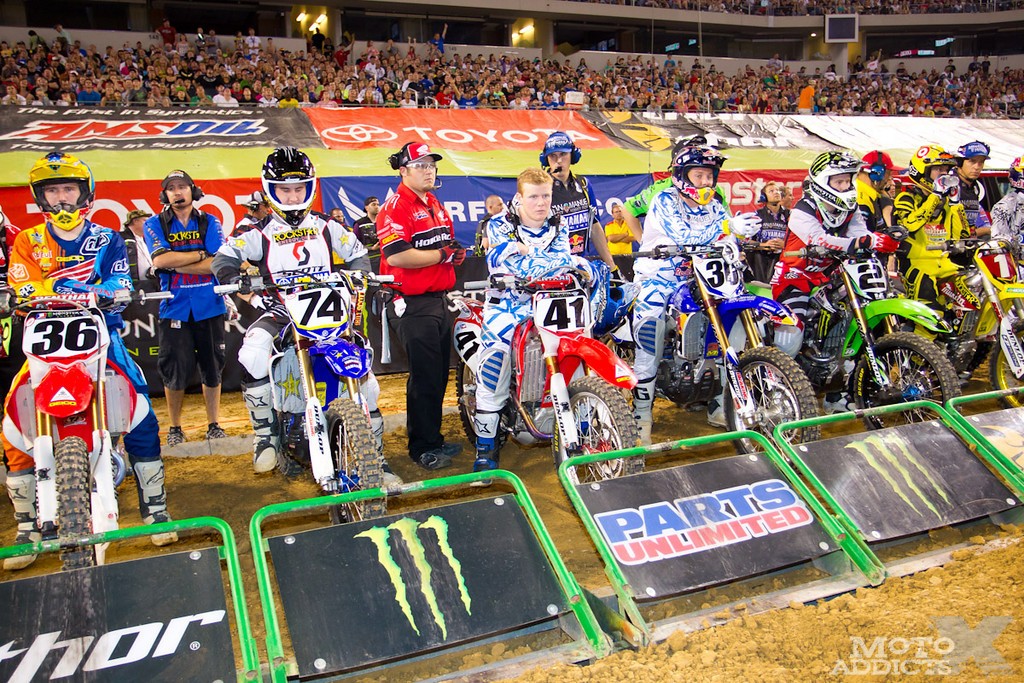
How was that outdoor bike feeling for you?
Great, man. I love it. They’ve put a lot of work into that thing, and obviously, you see what Chad’s doing on it. That’s a little bit of a booster for me.
Yeah, Chad’s been phenomenal in the Nationals so far. Every week, I keep hearing how he’s surprising people–which I kind of agree with–but at what point are people not surprised by it any more?
Yeah, I don’t know. I think that people are looking for Villopoto or Dungey to beat the older guy, but you can’t count out Chad, the experience that he has and the years he’s been doing it. The guy keeps learning the new stuff and making it even better. I’m not surprised. All those years of losing to Ricky made him one tough guy to beat.
I guess the question on everyone’s mind right now is when do you see yourself coming back?
I’m not real sure at this point. I’m just going to keep riding and training ,and when I’m ready I’ll be there. I’m just going to kind of play it by ear, not rush, and I’ll be there when I’m ready.
Fair enough. We’ll be waiting patiently to see you back out there. Anyone you want to thank for helping you get to the races every week?
Yeah, as always, we can’t do anything without the support of the people around us. The biggest shout out goes out to the Lord Jesus Christ, all that He is to us and all He’s given us. It’s just such a blessing to have His grace and to be able to do what we do for a living. Also, my family, American Honda, GEICO, SHOWA, Renthal, Fly Racing, DC Shoes, Leatt Brace, Scott Goggles. I mean, there are so many great people behind us.
Yeah, there are, and you represent them well. Thanks a whole lot for doing this, Trey. This was a blast for me just as a fan, so again, thanks.
Yeah, thanks again for the opportunity. It’s cool to be able to do things like this. Thanks.
